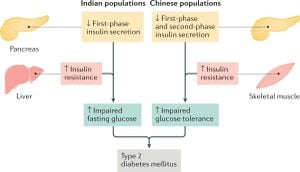With fresh tensions arising on the trade front, Canadian provinces have banded together to demand urgent discussions with Prime Minister Justin Trudeau about the state of trade relations with the United States. The request follows the anticipated return of Donald Trump to the presidential office, as provincial leaders express concerns about how the federal government intends to navigate these tricky waters amid mounting pressure on numerous fronts.
Ontario Premier Doug Ford took the lead, voicing the need for clarity from Trudeau on Canada’s strategy moving forward. The letter he penned on behalf of the premiers outlined the importance of acting swiftly to seize the opportunity presented by the incoming administration. "We require clarity from you about how you propose to include and engage with premiers as we enter the review of the Canada-United States-Mexico Agreement (CUSMA), including who among your cabinet ministers will serve as lead for your government," the letter emphasized.
While pressing for these discussions, Ford has been particularly vocal about the constraints posed by Mexico, alleging it serves as a channel for Chinese imports flooding the North American market. During recent remarks, he expressed his desire for immediate bilateral trade agreements with both the U.S. and Mexico before the scheduled review of CUSMA arrives in 2026. "They've had an opportunity to fix these concerns for years and they just don't want to," he stated, advocating for more decisive actions.
Echoing these sentiments, other premiers showed solidarity with Ford during their recent discussions. Newfoundland and Labrador Premier Andrew Furey described the proposals as contingency plans should the old agreements falter. Still, he added the discussions about bilateral agreements were not yet overwhelming or finalized.
Trudeau’s office confirmed receipt of Ford’s letter, pointing toward the federal government’s commitment to collaborating efficiently with provinces to align on shared objectives about trade and security. Trudeau himself mentioned how the trilateral deal has worked effectively up to this point and suggested, "my first choice is to continue the trilateral pact." Yet, he acknowledged genuine concerns about increasing Chinese investments moving through Mexico's channels, which he has raised with Mexican officials, including President Claudia Sheinbaum.
Sheinbaum responded during their discussions at the recent G20 Summit, confirming no such plant exists yet and emphasized the collaborative approach Mexico wishes to maintain within the framework of existing trade agreements, rejecting any notion of being excluded from the process or the treaty.
With trade officials from both countries aware of the looming discussions, the stakes are undeniably high. Numerous factors influence this scenario, particularly the strategy Canada adopts. Trudeau's hesitance to completely isolate Mexico stems from the lengthy negotiations and hard-won concessions achieved during the past trade discussions. Both Canadian and Mexican administrations recognize the potential fallout if either party begins to backtrack.
Political analysts stress the importance of measured responses and strategic alliances. Cutting Mexico out of deals is not as simplistic as it may first seem. Ford's articulated vision of renegotiation might hold certain allure; still, it risks alienation at this stage of the game.
Experts familiar with the shifts note Trump's past unpredictability and urge Canadian politicians to tread cautiously, refrain from being reactionary, and resist jumping to conclusions before determining where the vulnerabilities actually lie. A broad refrain suggests inducing panic within the political arena does little to bolster Canada’s standing.
Mexican officials have responded to these assertions with some clarity, stating their willingness to engage, rather than shuffle duties to navigate complex international demands. A united front, as operated through CUSMA, has been pivotal to the negotiation efforts – one which seeks to eliminate potential needless friction caused by premature strains on relationships.
Concerns surrounding foreign influence on North American industries highlight the real need to address how national interests can be protected from overseas investments perceived as threats, particularly from Chinese enterprises potentially leveraging partnerships established within Mexico.
Continual pressure will shape the upcoming discussions, but for now, all eyes are on the approach and tactical moves taken by Trudeau and his fellow leaders. Building strong inquiries and gathering pertinent information on various angles clarifies the perceptible tightrope act between national interests and continental partnerships.
Overall, as Canadian provinces push for actionable dialogues before the incoming Trump presidency takes hold, the mantra remains evident: collaboration is the crux of maintaining healthy trade relations.



